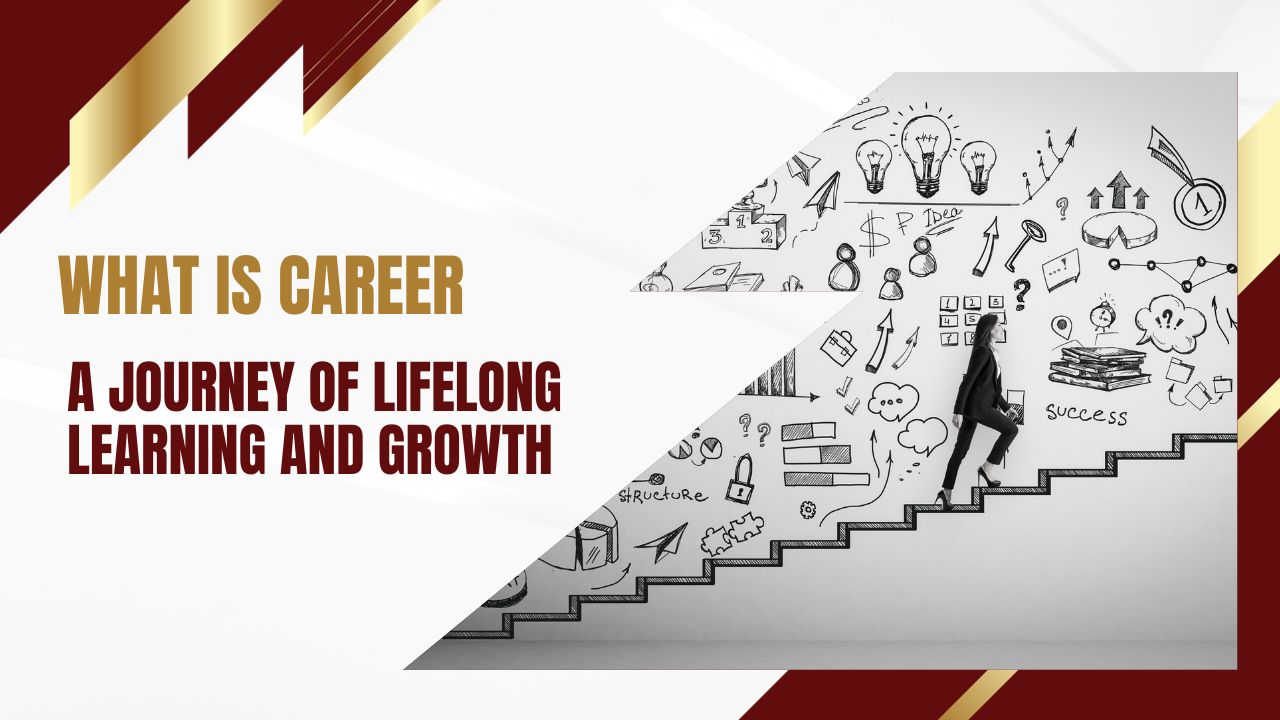As students jump on on their academic journeys, they often wonder about the skills they should be developing to ensure a successful career. The modern job market is constantly evolving, demanding a diverse set of skills that extend beyond academic knowledge. In this article, we will explore a wide range of skills that students can cultivate to enhance their career prospects. These skills encompass not only technical proficiencies but also interpersonal, problem-solving, and adaptability skills. Let’s dig into the different categories of skills that can set students on the path to a bright and promising future.
Academic Skills
Academic skills form the foundation of any student’s career. These include the ability to research, analyze, and synthesize information. Moreover, strong writing and communication skills are essential. These skills help students excel in their coursework and lay the groundwork for their future professional endeavors. Some academic skills for students are given below:
Research Skills
Developing effective research skills involves learning to find and assess credible sources, understanding how to conduct research efficiently, and compiling information coherently. This skill is essential for academic success as well as for conducting in-depth analysis in a professional setting.
Analytical Skills
Analytical skills are all about breaking down complex issues into manageable components, discerning patterns and trends, and drawing meaningful conclusions. Students with strong analytical skills excel at problem-solving and decision-making, making them valuable assets in many careers.
Writing Skills
Proficient writing skills go beyond mere grammar and spelling. They encompass the ability to construct clear and concise written communication. This skill is indispensable for crafting reports, memos, emails, and other forms of professional correspondence.
Communication Skills
Effective communication skills involve both verbal and non-verbal communication. It’s about expressing thoughts and ideas clearly and listening actively. In the workplace, these skills are vital for successful interactions with colleagues, clients, and superiors.
Critical Thinking
Critical thinking is the ability to think rationally and clearly, understanding the logical connection between ideas. It’s a skill that’s sought after in almost every career. Students should cultivate their critical thinking skills by the following ways:
Questioning Assumptions
Critical thinkers cultivate the habit of questioning assumptions and not accepting information at face value. This approach allows them to dig deeper and uncover insights that others may overlook.
Problem Solving
Problem-solving skills are essential for addressing complex issues in any field. Those who excel in this area can dissect problems, identify root causes, and develop effective solutions.
Decision Making
Good decision-making involves making informed choices based on available data and analysis. Critical thinkers are adept at assessing risks and benefits to arrive at well-considered decisions. It is very important for the students to possess responsible decision making skills to make their career successful.
Digital Literacy
In today’s digital age, being digitally literate is of paramount importance. It involves being proficient in using digital tools, software, and technology. Students can develop digital literacy through:
Learning Software
Becoming proficient in common software tools such as Microsoft Office and Adobe Suite is fundamental. These skills are widely applicable in various professional settings. So, learning these skills can be hugely beneficial for students.
Programming Skills
Basic coding skills, like Python or JavaScript, open doors in technology and data-related fields. These languages are in high demand and can lead to well-paying career opportunities.
Cybersecurity Awareness
With the increasing prevalence of digital threats, understanding the basics of cybersecurity is essential. This knowledge safeguards not only personal data but also the security of an organization’s information.
Adaptability
The professional landscape is ever-changing, and students should be prepared to adapt to new challenges and opportunities. Developing adaptability involves:
Embracing Change
Being open to change and adaptability are essential skills for a rapidly evolving job market. Those who embrace change readily are better equipped to thrive in unfamiliar situations and seize new opportunities.
Resilience
Resilience helps individuals bounce back from setbacks and maintain a positive attitude during difficult times. It’s a valuable trait that enables professionals to persevere in the face of challenges.
Lifelong Learning
Committing to lifelong learning ensures that students remain current in their fields. It keeps their skills and knowledge up-to-date and makes them open to new ideas and technologies throughout their careers.
Creativity
Creativity is not confined to artistic fields. It’s a skill that can benefit professionals across various sectors. Students can foster creativity by:
Thinking Outside the Box
Creativity involves innovative thinking and exploring unconventional solutions to problems. This skill can set individuals apart by providing fresh, creative perspectives.
Exploring Different Perspectives
Engaging with diverse viewpoints and ideas fosters a rich intellectual environment and encourages the development of creative solutions to complex problems.
Honing Artistic Skills
Developing artistic skills in areas like visual arts, writing, music, or other creative domains can enhance creative thinking and problem-solving in any profession. It encourages out-of-the-box thinking and innovative approaches.
Teamwork and Collaboration
The ability to work effectively in teams is highly valued in the workplace. Students should learn how to:
Communicate in a Team
Understanding group dynamics and communication is essential. Students should practice active listening and express their ideas clearly while working within a team.
Collaborate
The ability to cooperate with colleagues, delegate tasks, and work towards a common goal is highly regarded in professional settings. Effective collaboration often leads to improved outcomes.
Conflict Resolution
Navigating conflicts and differences of opinion within a team is a valuable skill. The ability to address and resolve conflicts constructively helps maintain a harmonious working environment.
Leadership Skills
Leadership is not just about being in a managerial position. It’s about inspiring and guiding others, whether you’re leading a team or not. Students can develop leadership skills by:
Taking Initiative
Leadership often begins with taking initiative. Students can practice proactively seeking opportunities to make a difference and create positive change.
Decision Making
Leadership involves making decisions and taking responsibility for the outcomes. Developing sound decision-making skills is crucial for those in leadership roles.
Mentoring and Coaching
Offering guidance and support to peers and colleagues fosters leadership qualities. Mentoring and coaching contribute to personal and professional growth.
Emotional Intelligence
Emotional intelligence is the ability to understand and manage your own emotions while also recognizing and influencing the emotions of others. Students can cultivate emotional intelligence through:
Self-awareness
Reflecting on one’s own emotions, triggers, and reactions is the foundation of emotional intelligence. This self-awareness allows individuals to manage their emotions effectively.
Empathy
Understanding and relating to the emotions of others is a cornerstone of emotional intelligence. It plays a vital role in building strong relationships in both personal and professional spheres.
Conflict Resolution
Emotional intelligence aids in navigating conflicts and building stronger interpersonal connections. It helps individuals approach conflicts with sensitivity and understanding.
Networking
Building a professional network is crucial for career development. Students can start developing networking skills by:
Attending Events
Participating in industry events, conferences, and seminars provides opportunities to meet professionals in one’s field. Networking in person can lead to valuable connections.
Online Presence
Maintaining a professional online presence, particularly on platforms like LinkedIn, enhances visibility and allows students to connect with professionals from diverse geographical locations.
Effective Communication
Networking relies on effective communication. Students should practice introducing themselves, articulating their goals, and building meaningful connections with professionals, thereby expanding their network.
Time Management
Effective time management ensures productivity and reduces stress. Students should focus on:
Prioritization
Time management starts with identifying and prioritizing tasks. Understanding which tasks are most important and time-sensitive allows individuals to allocate their time efficiently.
Setting Goals
Effective time management often involves setting clear, achievable goals and creating a plan to accomplish them. This provides direction and motivation.
Avoiding Procrastination
Procrastination is a common time management obstacle. Developing strategies to overcome it, such as setting deadlines and breaking tasks into smaller, manageable steps, can significantly enhance productivity and time efficiency.
Summary of Skills for Students
In today’s dynamic and competitive job market, it’s essential for students to develop a broad range of skills to secure a successful career. These skills encompass academic proficiency, critical thinking, digital literacy, adaptability, creativity, teamwork, leadership, emotional intelligence, networking, and time management. By consciously cultivating these skills throughout their educational journey, students can position themselves as valuable assets in their future careers, regardless of their chosen field. As the world continues to evolve, those with a diverse skill set will find themselves well-prepared to navigate the challenges and opportunities that lie ahead.




